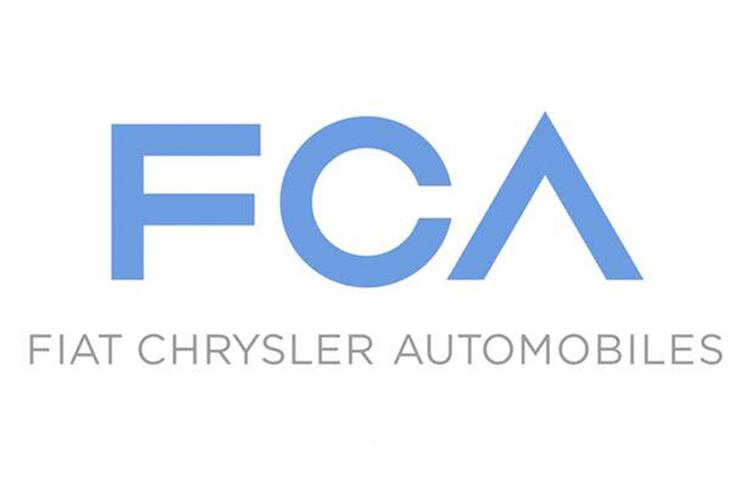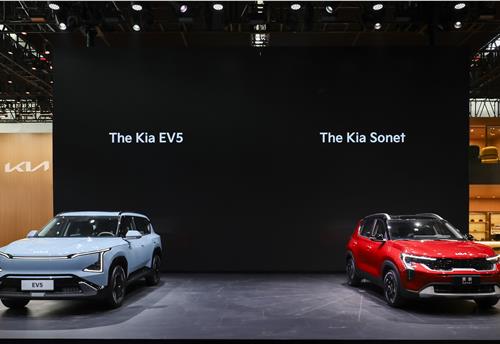Fiat Chrysler Automobiles accused of using emissions cheat devices
FCA will be accused of using illegal emissions-cheating software on over 100,000 SUVs and trucks in the US.
The US's Environmental Protection Agency (EPA) is to publically accuse Fiat Chrysler Automobiles (FCA) of using cheat software akin to that used by Volkswagen in the Dieselgate emissions scandal, according to Reuters.
It’s not the first time FCA will have been mentioned in emissions controversies; Fiat had to answer to German regulators last year, before being accused of using an emissions cheat device in October.
In the midst of the Volkswagen emissions scandal at the beginning of 2016, FCA also released an unprompted statement saying that its cars do not cheat emissions tests.
FCA cars accused of cheating include both SUVs and pick-up trucks – over 100,000 of which have been sold – with cars sold since 2014 alleged to be fitted with software which ‘allowed excess diesel emissions’.
Volkswagen’s US emissions scandal has involved the arrest of two senior employees and charges held against five more, who are believed to be in Germany. The manufacturer agreed to pay a $4.3 billion (£3.55bn) fine to US regulators as a settlement.
FCA released the following statement in reaction to the EPA's accusation: "FCA US is disappointed that the EPA has chosen to issue a notice of violation with respect to the emissions control technology employed in the company’s 2014-16 model year light-duty 3.0-litre diesel engines.
"FCA US looks forward to the opportunity to meet with the EPA’s enforcement division and representatives of the new administration to demonstrate that FCA US’s emissions control strategies are properly justified and thus are not 'defeat devices; under applicable regulations and to resolve this matter expeditiously."
Details on the Auxiliary Emission Control Devices
As per a press release from the International Council on Clean Transportation (ICCT), the United States EPA and the California Air Resources Board announced on January 12 that they have determined that Fiat Chrysler (FCA) failed to disclose Auxiliary Emission Control Devices (AECD) present in MY2014–2016 diesel Dodge Ram 1500s and Jeep Grand Cherokees.
The Notice of Violation cited FCA's failure to disclose eight Auxiliary Emission Control Devices (AECDs) on 2014–2016 Ram 1500 and Jeep Grand Cherokee 3.0L diesel engines, totaling 103,828 vehicles.
AECD #1 Full EGR shut-off at highway speed
AECD #2 Reduced EGR with increasing vehicle speed
AECD #3 EGR shut-off for exhaust valve cleaning
AECD #4 DEF dosing disablement during SCR adaptation
AECD #5 EGR reduction due to modeled engine temperature
AECD #6 SCR catalyst warm-up disablement
AECD #7 Alternative SCR dosing modes
AECD #8 Use of load governor to delay ammonia refill SCR catalyst
The term AECD dates to the early 1970s, when calibrations were controlled by mechanical devices. For modern vehicles with computer controls, AECD refers to calibration changes in the software.
An AECD is not necessarily a defeat device. Some calibration changes are essential for proper operation of an engine, such as fuel enrichment during engine start at cold ambient temperatures, or to prevent damage to the emission control system under infrequent high load conditions. Exclusions for engine start and to prevent damage to the engine or emission control system are included in the defeat device requirements. The essential issue is whether the manufacturer can demonstrate to EPA's satisfaction, as part of its application for a Certificate of Conformity, that the exclusion is technically justified—that is, essential in fact to the proper operation of the engine, or its protection.
The NOV provides four examples where the effectiveness of the emission control system is reduced under conditions that are reasonably expected to be encountered in normal vehicle operation and use. This discussion also identifies two cases where the AECD “does not appear justified”:
- “AECD #3 employs a timer to shut-off EGR; this EGR disablement does not appear justified for protecting the vehicle, nor does it meet any of the other exceptions”.
- “A timer is used to discontinue warming of the SCR after treatment system, thereby reducing its effectiveness, in a manner that does not appear to be justified to project the vehicle.”
The possibility remains that EPA will determine that an AECD used by FCA on these vehicles does constitute a defeat device, which would carry further enforcement consequences. According to the NOV, FCA has had the opportunity to demonstrate the technical necessity of the AECDs, but so far has failed to do so.
Also read:
- Fiat Chrysler announces senior leadership changes
- Volkswagen to pay $ 4.3 billion to USA for dieselgate
- With inputs from Jimi Beckwith, Autocar UK
RELATED ARTICLES
Kia displays EV5 and Sonet SUVs for Chinese market
Kia has unveiled a number of key models and new technologies for Chinese customers at the 2024 Beijing International Aut...
Nissan targets growth in China, unveils four NEV concepts at Beijing Motor Show
The two EVs and two plug-in hybrids are a joint effort with Nissan’s local partner Dong Feng and aimed to better address...
Lamborghini unveils Urus SE ahead of Auto China 2024
Electric-only range of 60km helps reduce emissions by 80%.





 By Autocar Pro News Desk
By Autocar Pro News Desk
 13 Jan 2017
13 Jan 2017
 6000 Views
6000 Views









